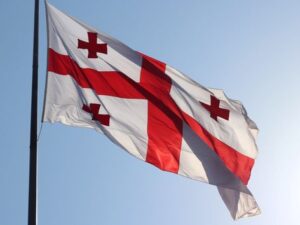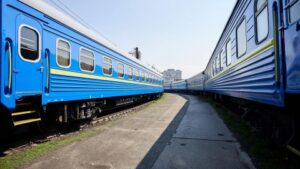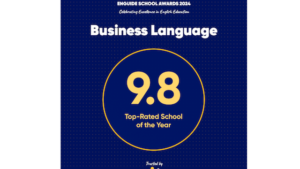
The Georgian authorities are carrying out a large-scale reform of migration legislation, which provides for tighter control over the legality of foreigners’ residence, the creation of a database of violators and the introduction of mandatory work permits from 1 March 2026.
Since 1 October 2025, the relevant ministry has been keeping a special register of foreigners who are or have previously been in the country illegally. State authorities have been given the right to request extended biometric data (including fingerprints and palm prints) and to carry out checks in private premises – residential buildings and workplaces – if there is a suspicion of a violation of the residence regime.
Complaints about the refusal to issue a residence permit or a decision on deportation will not automatically suspend the execution of such decisions. The new monitoring procedures apply to the main categories of residence permits – for work, business, study and property ownership.
A separate type of residence permit is being introduced for IT specialists: applicants must have at least two years of documented relevant experience and an annual income of at least $25,000. Such residence permits are issued for three years with the possibility of extension up to 12 years.
From 1 March 2026, foreigners will generally require a valid work permit to work in the country. Experts recommend that foreign citizens and employers prepare a package of documents in advance – employment contracts, proof of income, certificates of no criminal record – and strictly comply with the conditions of already issued residence permits, as violations can lead to additional checks, fines, deportation and refusals to extend status.
According to data from the National Statistics Office of Georgia (Geostat), in 2024, foreigners made up about 6.6% of the country’s population, or about 250,000 people, while in 2014 there were only about 22,000 (0.6% of the population). Research by ISET-PI and other think tanks shows that in 2015–2024, the largest net immigration inflows came from citizens of Russia (about 97,000 people), Ukraine (about 27,000) and Azerbaijan (about 14,000), with significant groups also coming from Turkey, India and Belarus.
Analysts note that further tightening of the migration regime could lead to a partial outflow of relocants and their families to other jurisdictions with more predictable rules – primarily to EU countries with active programmes for IT and start-ups (Portugal, Spain, Germany, the Czech Republic), as well as to destinations already popular with people from Russia, Ukraine and Belarus: Serbia, Montenegro, Armenia, Kazakhstan and the UAE. According to consultants, the key factors when choosing a country for relocation are the transparency of residence permit and work permit procedures, the availability of housing and political stability.

Investments in the development of Georgia’s transport and logistics infrastructure for 2026-2031 will amount to $7 billion, the country’s Economy Minister Mariam Kvrivishvili said, speaking in Tashkent at the second forum of investors in the Trans-Caspian Transport Corridor.
“To fully realize the transport and logistics potential of Central Asia, the Caspian region, the South Caucasus and the Black Sea, coordinated financing is crucial. In this regard, Georgia has committed to invest $7 billion in key transportation and logistics infrastructure by 2032,” Kvrivishvili said, quoted by the press service of the Economy Ministry.
According to her, the realization of these plans will require more active participation of the private sector in addition to the permanent participation of international financial institutions.
The Minister said that the priorities in the field of transport and logistics of Georgia in 2026 will be the complete renewal of railroad rolling stock and freight fleet, completion of the Baku-Tbilisi-Kars (BTC) railroad, as well as the introduction of unified digital services for both the public and private sectors in order to reduce the transit time in the country by 30%.
She also announced the signing of an agreement on the Caspian Sea-Black Sea international transportation route between Turkmenistan, Azerbaijan, Georgia and Romania this December. “This initiative will create a new multimodal route from the Caspian region to the European Union, increasing transport connectivity, diversifying access routes and strengthening sustainability,” the minister said.
In addition, Kvrivishvili reiterated plans to build a deep-water port in Anaklia. “Once launched, Anaklia port will be able to handle up to 600,000 TEUs in the first phase by 2029 and at least 1 million TEUs in the second phase by 2035, which will allow Georgia to become the main hub for Central Asian cargo in the Black Sea region,” the minister said.

The National Agency of Ukraine for the Identification, Investigation, and Management of Assets Derived from Corruption and Other Crimes (ARMA) has put up for auction land plots of ski resorts in the Zakarpattia region and the lower station with a chairlift and the upper station of a ski lift with the consent of the owners for a total amount of over UAH 347 million.
According to the announcement on the Prozorro.Prozori platform, one of the lots included 115 land plots with a total area of about 98 hectares in the Khust district (Pylypetska OTG), 93 land plots with a total area of over 98 hectares in the Svalyava (Bereznykivska SR) and Khust (Pylypetska OTG) districts of Zakarpattia region, as well as the lower station with a chairlift and the upper station of a ski lift.
The starting price of the lot is UAH 150.4 million.
The other lot includes 145 land plots belonging to Borzhava Development LLC, 56 land plots belonging to Borzhava Invest LLC, 42 land plots belonging to Borzhava Land LLC, and two land plots belonging to Dumka LLC. The land is located in the Mukachevo and Khutsk districts of Zakarpattia.
The starting price is UAH 176.5 million.
The third lot includes 41 land plots owned by Taurus Invest LLC, also located in the Mukachevo and Khutsk districts of Zakarpattia.
The starting price is UAH 20.9 million.
It is noted that consent to the sale of the seized property was given by the owners of the assets of Borzhava Development LLC, Taurus Property LLC, Taurus Land LLC, Taurus Invest LLC, Dumka LLC, Borzhava Land LLC, and Borzhava Invest LLC.
Auctions based on the English model are scheduled for December 2.
According to Opendatabot, the ultimate beneficiary of these companies is Austrian citizen Gernot Leitner, a representative of the Austrian ski industry and a long-time participant in the preparation of the Summer and Winter Olympic Games.
As reported, the state began searching for investors for the construction of the Borzhava ski resort back in 2013 to implement the project “Olympic Hope 2022: Creation of Sports and Tourism Infrastructure.” However, a number of projects, including Olympic Hope 2022, were not implemented due to embezzlement by officials of the State Agency for Investment and National Projects Management and the State Investment Company, as revealed by detectives from the National Anti-Corruption Bureau of Ukraine.
Later, in 2020, Leytner presented the resort project. Construction was scheduled to begin in 2021.

Ukrzaliznytsia (UZ) has added eight new international and three domestic connections to its new schedule for 2025–2026, which will come into effect on December 14.
“The new schedule plans to increase the number of seats during peak periods by 20% and offer a total of 2 million seats over the year,” according to a press release issued by the company on Thursday, which states that in less than 11 months this year, the company has carried more than 25 million passengers, almost half a million more than last year.
It is noted that in July-August, UZ tested a model of additional transportation by using daytime shuttle trains between their “main” flights, which on peak days provided more than 7,000 additional seats per day. This formed the basis for planning for 2026.
“Since our rolling stock fleet remains limited, we must become much more efficient in order to transport even more passengers. Therefore, the 2026 timetable is fundamentally based on increasing efficiency: new shuttle flights, high-quality acceleration, and more carefully thought-out connections,” commented Oleksandr Pertsovskyi, chairman of the board of Ukrzaliznytsia, on the changes.
Three trains are being added to domestic service: No. 47/48 (Kramatorsk) Barvinkove-Chop, No. 33/34 Kryvyi Rih-Ivano-Frankivsk, and the updated route of train No. 113/114 Kharkiv-Uzhhorod.
“The historic ”Bakhmut” route, which is the only train of social importance for Polissya and Volhynia, will be extended to Zakarpattia. This route should be seen primarily as an opportunity for residents of Zhytomyr, Olevsk, Sarny, Rafalivka, and other cities along the route to travel to the mountains (Slavske) and Zakarpattia (Uzhhorod), while maintaining reliable connections with Sumy and Kharkiv regions,“ commented the latest ”UZ.”
It was also announced that the Lviv-Vorokhta regional train, operated by a modern DPKr-3 diesel train, will run on a regular basis, and trains will run every hour between Lviv and Kyiv.
“This means that on the most popular route, Kyiv-Lviv-Kyiv, trains will run on a stable and regular schedule – every hour. The vast majority of trains will run year-round, with a few exceptions for the ”off-peak“ period,” the company explained.
As for international flights, the new schedule includes night train No. 7/346-347/8 Uzhhorod-Vienna, consisting of European railway sleeping cars, as well as trains No. 36/35, 32/37 Budapest-Nyíregyháza-Berehove, which will travel to Ukraine via the “Ferihéd” station (Budapest International Airport) and “Chop” also on European gauge tracks.
Moreover, an additional regional train No. 644/647 Uzhhorod-Zahony (via Chop) will allow passengers to transfer in Zahony to any of the regular trains of the Hungarian railway in the direction of Budapest.
Tickets for the new schedule for dates after December 14 are already on sale in the app and on the Ukrzaliznytsia website.

According to Serbian Economist, Ukrainian airline SkyUp Airlines, operating from Chisinau under the brand name of its partner carrier Vision Air, will launch direct seasonal flights on the Chisinau–Tivat (Montenegro) route in the summer season of 2026. This is stated in the airline’s announcement.
According to the published schedule, flights will start on June 9, 2026, and will be operated three times a week — on Tuesdays, Thursdays, and Sundays — until September 20, 2026, on Boeing 737-700 aircraft.
As noted by the industry portal Ex-Yu Aviation, SkyUp will compete directly with the Moldovan carrier FlyOne on the Chisinau–Tivat route, which also plans to operate three flights a week on this route during the summer season.
“Demand for travel to the Balkans is growing every year, as the region combines affordable prices, the sea, nature, and a variety of leisure activities. The launch of flights to Tivat and Tirana gives our passengers more opportunities for summer travel in the 2026 season. We continue to develop our route network from a convenient starting point – Chisinau – and offer quality service at a fair price,” said Daria Alekseenko, SkyUp’s director of scheduled flights.
On the day sales started, tickets for the new route were offered at a promotional fare of €17 one way, SkyUp emphasizes.
Source: https://t.me/relocationrs/1834

Accents, their beauty and impact on perception
Imagine this: You speak English and your interlocutor is surprised – “Wow, where did you get your accent from?” – but in a positive way, not with ridicule. Or when you speak at a business meeting, your voice sounds confident, not unnatural, even if it is not “perfectly American” or “British Received Pronunciation”. An accent is not just a set of sounds, it is a part of your linguistic personality, and it can actually work for you, not against you.
In this article, we will analyze what an English accent is, why it is not a flaw, but a quality component of communication. We will also dispel myths about the “right” accent, show practical cases and give advice on how to work with your own accent – if you want to change it, adapt it or just accept it.
What is an accent?
An accent is a characteristic speech trait associated with the sounds (pronunciation), rhythm, and melody of a language. When we say “accent,” we usually mean:
● A phonetic accent – how you pronounce vowels and consonants (e.g., “th” /θ/ or /ð/).
● Intonation accent – the rhythm, rises and falls of your speech.
● Rhythmic accent – word stresses, pause lengths, and speed.
An accent is shaped not only by the language you are learning, but also by your native language background, the amount of practice you have had, your environment, and even your musical preferences. However, an accent is not a disease or a “mistake”: it is part of your uniqueness.
Why an accent is an advantage, not a disadvantage
Identity and authenticity
Your accent is a part of who you are. It reflects your background, life experience, and the language you grew up with. Having an accent means that you are not a copy of someone else, but an authentic person who brings something of yourself to the world of English.
Emotional depth
When people speak with an accent, they can sound emotionally closer, warmer, and more human. An accent adds “texture” to the voice – it’s not a flat corporate template, but a multi-layered live sound.
International communication
The world of the English-speaking community is very diverse. You often communicate not only with native speakers, but also with people whose native language is not English. In this context, an accent is the norm. And people understand people with different accents well.
Memorability
People are more likely to remember someone whose voice is distinctive. An accent can be your “thing” that helps you stand out, especially in a professional environment, such as at conferences, presentations, and in video publications.
Myths about the “right accent” and why they are wrong
There are many stereotypes that having a “perfect American” or “classic British” accent is the goal of learning English. However, these are myths. Here are some of the biggest ones and why you should reject them.
Myth 1: There is only one “right” accent
Many people think that the “right” accent is a formal, academic accent. But in real life, there is no such single “correctness”. English is a global language, and it sounds different in different regions: American, British, Australian, Indian, African – all variations are quite “correct”.
Myth 2: It’s easier to communicate without an accent
Some people think that “getting rid of the accent” will improve communication. But this is not always the case. Often, an accent does not interfere with understanding – instead, it gives the language authenticity. Sometimes, changing an accent can even increase stress and reduce the naturalness of speech.
Myth 3: Professional success depends on the accent
There is a belief that business professionals should have a “neutral”, “imperceptible” accent to be serious and authoritative. In reality, competence, ideas, and confidence are much more important than the way your vowels sound. In addition, an accent can be part of your unique communicative identity that sets you apart from others.
Myth 4: An accent can and should be completely “eliminated”
Sometimes people spend years trying to reduce their accent, forgetting the benefits of their own sound. It’s a lot of work to completely “eliminate” an accent, and you can focus instead on understanding: making sure that others can hear you clearly. Often it is enough to soften some sounds or work on intonation, rather than changing everything.
The impact of accent on perception
How does an accent affect the way you are perceived – by friends, colleagues, at interviews, during public speaking? Here are a few aspects.
Social prejudice
Unfortunately, in some cases, an accent can lead to unfair judgments. People may have prejudices related to “foreign” pronunciation, associating an accent with less competence, less “authority” or even social status. This is a well-known problem of linguistic discrimination.
A positive difference
On the other hand, an accent can be your competitive advantage. In a professional context, it can indicate multilingualism, global perspective, and cultural experience. If you’re a speaker or communicator, an accent can emphasize your roots, your authenticity, and your diversity.
Trust and sympathy
People often feel emotionally sympathetic to speakers with a soft accent – it can sound sincere and “human”. For many listeners, this is more attractive than a perfect, flawless, but “impersonal” sound.
International reputation
If you work in a global environment, having a distinctive but clear accent can help you come across as a global player. It emphasizes your multilingualism and openness to culture, and this can be an advantage in international markets or at conferences.
Case studies: how accent affects life
Let’s look at some real-life examples – and real (but anonymized) situations – to show how an accent can be both a challenge and an advantage.
Case 1: “Anna is a startup from Ukraine, speaks with an accent”
Anna is the founder of a tech startup, and she makes presentations to investors from the US and Europe. At first, she was embarrassed by her Ukrainian accent: she was afraid that investors would not take her seriously. She even tried to practice her “American” pronunciation and spent a lot of time shadowing native speakers.
But during one of her pitches, she just spoke as she always did, with an accent. And one of the investors said: “Your accent is your strength. You’re a global person, not someone who just studied in the States.” After that, Anna felt more confident: her accent became a part of her brand, something authentic that helps her stand out from the crowd.
Case 2: “Carlos is an English teacher from Latin America”
Carlos works as an English tutor. His students are adult business professionals from all over the world. Carlos has a noticeable Latin accent in his English. Some of his new students were worried: would they understand him well? Was he “correct enough”?
But after a few lessons, they began to admire him: his accent was part of his friendly, warm personality. They felt that Carlos was not just a voice from a textbook, but a real live teacher who could explain things in a way that was understandable and friendly. Carlos’s accent has become an advantage: it engages students and creates an atmosphere of openness and acceptance.
Case 3: “Lee is an employee of an international organization”
Lee is a native of Southeast Asia and works for an international non-governmental organization. She often gives presentations, participates in webinars, and writes reports. Her English is excellent, but with the soft accent of her native language. Sometimes she noticed that some of her colleagues – especially those who speak English as their first language – were a bit reserved.
So Li decided not to fight her accent, but to invest in clarity: she worked on her articulation (so that vowels and consonants were clear), on pausing (so that she didn’t speak too fast), but didn’t try to completely “eradicate” her accent. Over time, her colleagues began to listen more, her voice was taken seriously, and her multilingual experience made her more effective as a mediator and global communicator.
How to work with an accent: recommendations
Whether you want to reduce some of the accent or just make your speech clearer, there are useful practices. And don’t think of it as “correcting a mistake”: it’s language development.
1. Shadowing.
This is a technique where you listen to a native speaker and immediately repeat after them – word by word, intonation, rhythm, pauses. This helps you to train your articulation, intonation, and sounds that bother you. Do it regularly – even 10-20 minutes a day can give a noticeable result.
2. Record yourself
Record your speech: during conversations, when you read aloud or give a presentation. Then listen to the recordings, compare them with native speakers, and make notes: what sounds you want to change, where you can add clarity or improve intonation.
3. Work with a specialist
A pronunciation teacher or speech coach can be of great help: they can guide your practice, point out specific features that you should work on. They won’t say “remove your accent” but will give you specific techniques to improve intelligibility.
4. Practice in real-life situations
Talk to native speakers, participate in language exchanges, hold discussions, presentations, webinars. The more live communication you have, the faster you will adapt your language and find your own style.
5. Work on intonation and rhythm
An accent is not only about sounds, but also about the music of the language. Practice rises and falls, accents, pauses. Use songs, poetry, rhythmic exercises: anything that helps you improve the musicality of your speech.
6. Accepting your own uniqueness
One of the most important parts is inner work. Give yourself permission to have an accent. Not all the details need to be “corrected”: if the voice is clear, if the intonation is natural, this is already a great victory. Accepting yourself and your sound is a real transformation.
How an accent can work for you
Now that you know that you don’t need to strive for a perfect “neutral” accent, let’s think about how to use your own accent as an advantage.
Authentic branding
Whether you’re a lecturer, presenter, consultant, or businessperson, your accent can be part of your personal brand. In a world where many people strive to sound “like everyone else,” difference is a plus. Your voice can become recognizable and unique.
Establishing trust
People who have a better understanding of what’s behind the language often trust communicators with a strong, warm accent more. They feel like they are talking to a real person, not an idealized language robot.
Intercultural commonality
Your accent can be a point of connection with other people who also speak with an accent. You can inspire other speakers: “You see, I speak with an accent – and it’s okay!” – thus helping to create a global community of acceptance.
A conduit for different cultures
With an accent, you are actually a bridge between cultures: You bring your cultural history, experience, and background to the world of English. This makes your communication richer and deeper.
Tips for those who are still hesitating
● Don’t define yourself by your accent – neither as a problem nor as a goal. It is just one of the many aspects of your language.
Set specific goals: “I want to be understood well,” “I want to sound authentic,” “I want more confidence in my speaking” is better than “I want a Brad Pitt accent.”
● Keep a language diary: write down your progress as it changes. Sometimes progress is fastest seen in retrospect.
● Find support: a group of friends, language partners, teachers – those who support you and give you constructive feedback.
Enjoy the process: working on an accent is not a punishment, but a journey. And it is important to be kind to yourself on this journey.
Conclusion.
Your English accent is not a disadvantage, but a wealth. It is the voice of your identity, history, and experience. The myths about the “right” accent are outdated and limiting; it is not important to be perfect, but to be understandable, authentic, and confident. Practical cases show that people who embrace their accent often achieve greater freedom, expression, and influence.
If you want to change part of your accent, it is quite possible and worth the effort. But if you simply want to embrace it, it is also a path to power. Either way: Your voice is unique, your accent is part of your story, and it can work for you, not against you.
Work on your pronunciation, listen to yourself, speak, enjoy your voice. And let your accent become not a burden but a powerful tool for communication and self-expression.
In ENGLISH.KH.UA courses, you don’t “correct” your accent – you discover its power. Here, an accent is not perceived as a mistake, but as your unique timbre in the global chorus of English. When you practice your pronunciation in a safe space with a teacher who hears not only the sounds but also your goals, the fear of “sounding wrong” disappears. What remains is a sincere English that is you – confident, calm, and noticeable. This is how you start speaking, which does not copy anyone, but easily attracts attention.